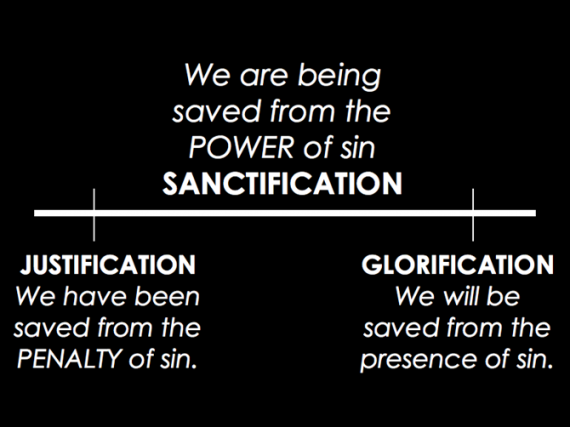In some previous posts, I have written that while the gospel is huge and complex, the gospel invitation is clear and simple. I have received many comments, Tweets, and Facebook messages about this, so let me try to clarify even further.
There are thousands of gospel truths in the Bible. Clearly, one cannot believe all of them, nor must one understand and believe all of them in order to receive eternal life. Thankfully, Jesus Himself (as well as the Apostles) consistently show that there is one small set of gospel truths that must be believed to receive eternal life.
I call this “the gospel invitation.”

The Gospel Invitation
The gospel invitation is one truth three parts. A person is invited to:
- Believe
- In Jesus
- For everlasting life.
Another way to think about this is that we are to (1) believe (2) in a person (3) for a promise.
Let us briefly consider each.
Believe
First, we invite people to believe.
Since the New Testament almost universally uses the verb “believe” or the noun “faith” it is not wise to substitute other words such as trust, commit, submit, decide, repent or any other word that implies some sort of action or work on our behalf. Believing and faith are the words the Bible most often uses (which is only one word in the Greek with a verb and noun form), and so we garble the gospel when we choose to use other words.
Yes, it is important to understand what the words “believe” and “faith” mean, which in itself is a huge study, but I will walk through this study with you in a future course I will offer.
Believe in a Person
 Second, we invite people to believe in a person, namely, Jesus Christ.
Second, we invite people to believe in a person, namely, Jesus Christ.
We do not just invite people to just believe; they are invited to believe in Jesus.
Also, since Jesus has come and revealed God to us, it is not sufficient to invite people to believe in God. Someone can believe in God (or a god) and still not believe in Jesus.
But what exactly do they believe about Jesus? That He was human? That He was God incarnate? That He died on the cross and rose from the dead? That He was born of a virgin and lived a sinless life? When we believe in Jesus, what about Jesus must we believe? This leads to the third gospel invitation truth.
Believe in a Person for a Promise
We invite people to believe in Jesus for everlasting life.
There is a bit more flexibility with this term than with the other two. For example, instead of everlasting life, you could also use the words eternal life, the righteousness of God, or justification. Yet since some of these latter terms may require further explanation, it seems best to use the words Jesus Himself used, and stick with “everlasting life” or “eternal life.”
But whatever terminology you use, it is important to emphasize the promise Jesus makes to those who believe in Him. We are to believe in Jesus for His promise of eternal life.
It is not sufficient (or even the same thing) to believe that Jesus was God, or to believe that Jesus died on the cross for our sins and rose again from the dead, or to believe that Jesus really existed, or any of these other true facts about Jesus. If you take a look at each one of those facts, while all of them are true, none of them include a promise, and it is entirely possible for someone to believe that Jesus truly existed, that Jesus was God in the flesh, and to believe that Jesus died on the cross and rose again from the dead, while at the same time, failing to believe in Jesus for everlasting life.
Even the most legalistic, works-righteousness, religious Christians believe that Jesus was God and that He died on the cross and rose again. But they do not believe that Jesus gives eternal life to those who simply and only believe in Him. Instead, such people believe that we must somehow work for, earn, and keep our eternal life through a life of good works. Such people believe a lot of good things about Jesus, but they do not believe in Jesus for everlasting life. As such, the gospel invitation is not complete if it does not mention the promise of eternal life.
The Clear Gospel Invitation
So the central invitation of the gospel is that we can believe in Jesus for everlasting life. It is that simple and that clear.
Do you believe this?
Do you believe in Jesus for eternal life? If so, you have it. Jesus guarantees it.
Can you also share this with other people? Of course you can!
Just like Jesus did, you can invite people to believe in Jesus for eternal life.
You do not need to invite them to forsake their sin, repent, confess, commit, submit, or any of the other common words and terms that are found in modern gospel presentations but are not found on the lips of Jesus.
If you want to invite people to receive eternal life, you can do no better than use the words Jesus Himself used. Simply invite people to believe in Jesus for everlasting life.
 Want to learn more about the gospel? Take my new course, "The Gospel According to Scripture."
Want to learn more about the gospel? Take my new course, "The Gospel According to Scripture."
The entire course is free for those who join my online Discipleship group here on RedeemingGod.com. I can't wait to see you inside the course!




 If so, we might as well just give up evangelizing right now. You will rarely, if ever, get a non-believer to read the entire Bible, and even then,
If so, we might as well just give up evangelizing right now. You will rarely, if ever, get a non-believer to read the entire Bible, and even then, 

 This, of course, doesn’t mean that once you have eternal life, you can just go live however you want. The gospel contains all sorts of truths and teachings about how to live our lives now once we have the free gift of eternal life.
This, of course, doesn’t mean that once you have eternal life, you can just go live however you want. The gospel contains all sorts of truths and teachings about how to live our lives now once we have the free gift of eternal life. 
 Here is how I have usually read John 11:39-44:
Here is how I have usually read John 11:39-44:

 In previous posts we looked at several words that do not refer to eternal life:
In previous posts we looked at several words that do not refer to eternal life: 
